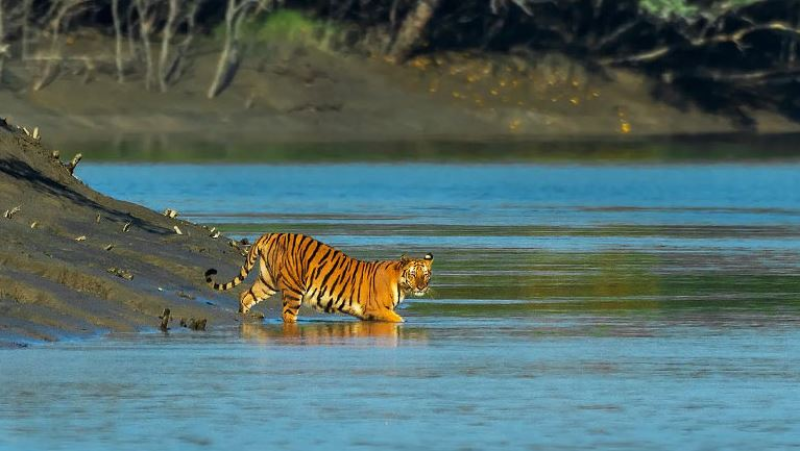- Mojtaba Khamenei Named Iran’s New Leader |
- Iran vows to hit all ME economic hubs if US-Israeli attacks persist |
- Sammilito Islami Bank merger to continue: Governor |
- Biman Suspends Flights to Six Middle East Cities Over Tensions |
- Govt Announces 25pc Rail Fare Discount |
Master Plan Unveiled to Promote Sustainable Tourism in Sundarbans

Photo : Collected
A comprehensive 20-year “Sundarbans Ecotourism Master Plan (2025–2045)” has been formulated to protect the ecological integrity of the world’s largest mangrove forest while developing sustainable tourism that benefits both nature and local communities.
Unlike conventional infrastructure-based projects, the new plan emphasises environment-friendly tourism to ensure conservation and inclusive growth. Once approved by the Forest Department, officials expect the initiative to draw more foreign visitors to the UNESCO World Heritage Site.
The Bangladesh Forest Department implemented the three-year initiative in partnership with Solimar International, with technical and financial assistance from USAID under its Ecotourism Activity pilot project.
Professor Dr Md Wasiul Islam, Deputy Chief of Party and faculty member at Khulna University’s Forestry and Wood Technology Discipline, led the formulation process.
He said the plan, prepared over two years, serves as a detailed roadmap for balancing environmental and economic goals.
“Its implementation will accelerate tourism growth, improve local livelihoods, and strengthen biodiversity conservation in the Sundarbans,” Dr Wasiul said.
The plan aims to promote eco-friendly tourism that uplifts local communities while ensuring long-term forest preservation. It also explores strategies to attract more foreign tourists, enhancing foreign exchange earnings crucial for national growth.
“Foreign visitors are particularly fascinated by the Sundarbans’ serenity and moonlit beauty—experiences that can significantly boost tourism if properly managed,” Dr Wasiul added.
A key feature of the plan is its community-based ecotourism model, developed through extensive consultations with stakeholders, including the Forest Department, Department of Environment, universities, tourist police, local government bodies, Mongla Port Authority, national and regional tour operators, and local residents.
“Since the plan was developed with strong community involvement, the risk of conflict is minimal,” Dr Wasiul explained. “Local people will directly engage in ecotourism activities, benefiting socially, culturally, economically, and environmentally.”
The master plan focuses on reducing reliance on forest resources by creating alternative, sustainable livelihoods through tourism, which will help maintain ecological balance.
“This approach will ease pressure on the mangrove ecosystem and enhance resilience to natural disasters such as cyclones and tidal surges,” he added.
More than 200 eco-guides have been trained to manage visitors and minimise human-wildlife conflict. Their presence will ensure safe, environmentally responsible tourism. Training has also been provided to eco-cottage staff in areas such as Dakope to improve hospitality and guest management standards.
To enhance visitor experience, the plan recommends establishing information centres at key entry points—Mongla, Munshiganj, and Sharankhola—to help tourists with boat services, eco-guide hiring, and community-based facilities.
Imran Ahmed, Conservator of Forests, said around 200,000 tourists visit the Sundarbans each year, creating challenges in maintaining ecological balance and waste management.
“This master plan will promote responsible tourism without harming the forest. It’s a timely and commendable initiative,” he said.
He added, “The Sundarbans is a national treasure. Its preservation and proper management are vital for the country. Once implemented, the master plan will transform Khulna into a major revenue-generating tourism hub.”
Local communities near the Sundarbans have expressed optimism about the project, saying government oversight under the new plan would ensure both environmental protection and community welfare.
Project officials hope the long-term master plan will turn the Sundarbans into a global model for sustainable ecotourism—balancing conservation, empowering local people, and welcoming nature lovers from around the world.

